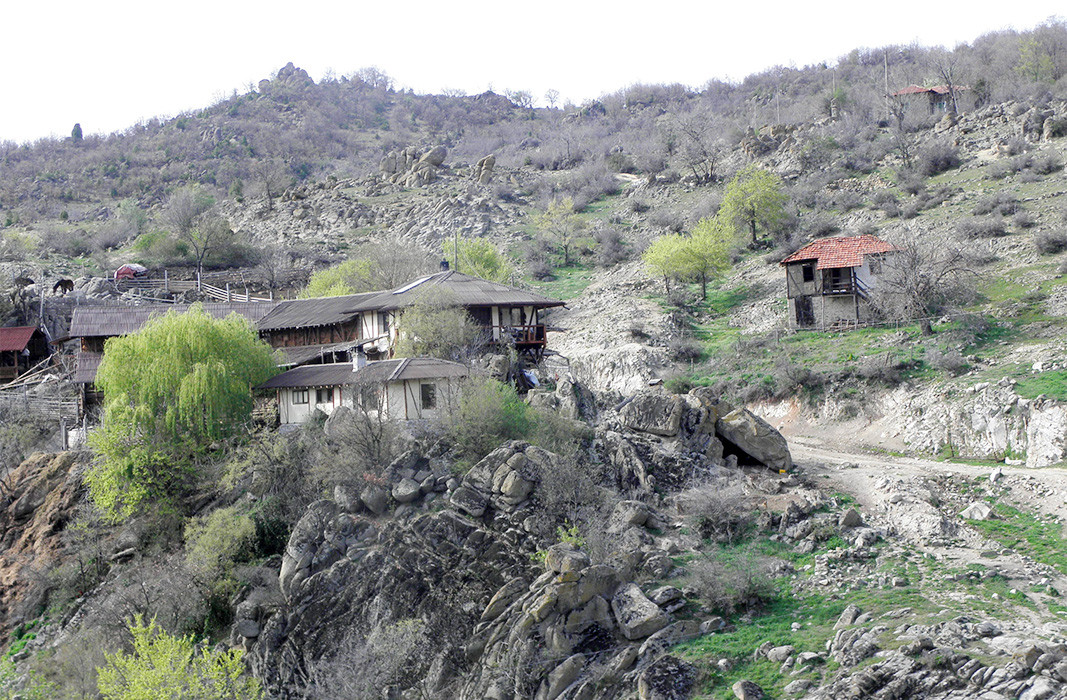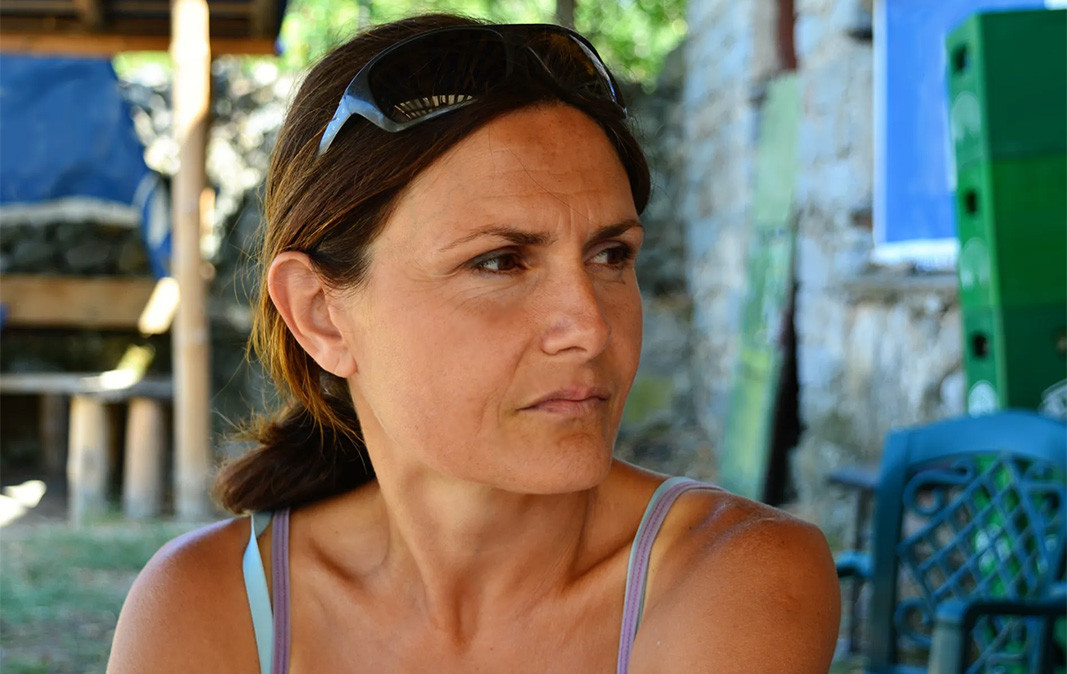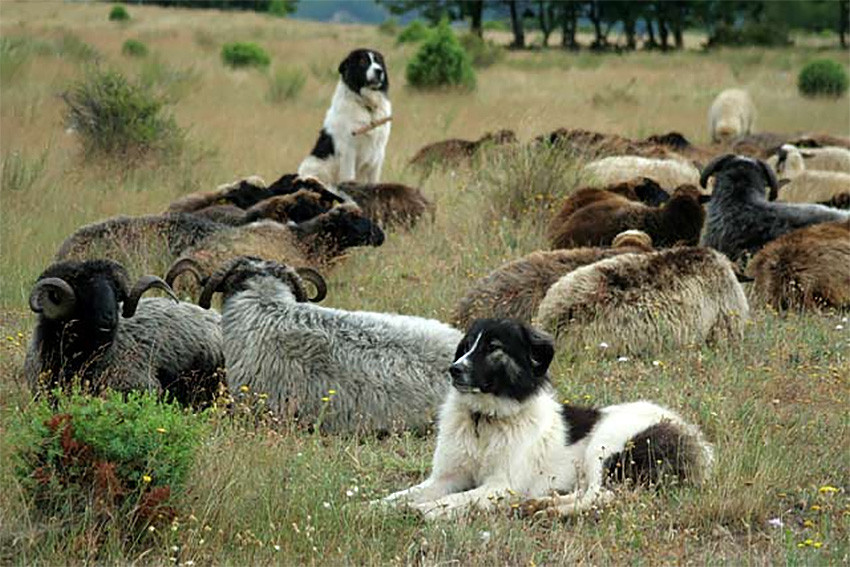For more than 20 years, Elena Tsingarska's family has been working for reviving endangered breeds, including the Karakachan sheep and the Kalofer goat. In order to dedicate themselves to their cause, they all abandoned city life and started a search mission for ancient breeds in villages, barns and meadows.

"Our idea was to take care of the animals in the most traditional way possible – the way the Karakachani shepherds did it," she said.

“Before being forcibly settled by the socialist regime, they used to take huge seasonal trips with their herds to the Aegean and the Bulgarian mountains. Nowadays, this is possible through high-altitude grazing. That is why we set up our winter base for the animals in the village of Vlahi. ”
The Karakachan sheep takes us back all the way to the civilization of the Thracians, who decorated their ceramic vessels with images of this breed. In the past when Karakachani were forcibly settled in the cities, some of the animals were slaughtered and others crossed with different breeds in the farms seized by the communist government.

"We literally gathered the animals one by one as few were left in farms," Elena Tsingarska says. “We usually found one or two sheep in isolated flocks, mainly in the Rhodopes and in Rila Mountain and today our flock includes nearly 500 Karakachan sheep. The Kalofer goat was easier to find because it was bred in the area for the creation of mummer's costumes, but once again it was difficult to take care of the herds without any support. It was just our enthusiasm and will to do something good for these breeds in order to bring them back to life.”

While Elena's husband, artist Sider Sedefchev, takes care of the herds, she herself continues her activities related to the research and conservation of large predators in Bulgarian lands. For this purpose she created an educational center in the village of Kresna.

"The center was established with the idea to provide realistic information about the large predators of Bulgaria and related species around the world, as well as their exceptional role in ecosystems,” Elena Tsingarska has told Radio Bulgaria. “Our activities are aimed mainly at children and adolescents, as we hope that they would understand the importance of nature preservation. We organize summer camps for students here.”

Adventures, games, and stories by the campfire are memorable but kids are most impressed when they stand by the fence of the wolves Baito and Vachka, who were rescued from a zoo.

The bears Medo and Buya also used to have a home near the educational center, but were sent to the Italian Alps because of the constant water shortages in the village.
Elena Tsingarska says that every person needs to carry the love of nature in themselves because we are part of it and cannot survive without it. That is why instead of the hectic city life she chose to lead a life full of meaning and close to nature.
English: Alexander Markov
Photos: BGNES, evromegdan.bg, Facebook /@LargeCarnivoreEducationCentreBulgaria and libraryPresident Rumen Radev's "Support a Dream" charity initiative has attracted the support of musicians, stylists, designers and donors, the head of state's press secretariat said. A prom hosted by the president each spring brings together high school..
The Speaker of the National Assembly Natalia Kiselova will today award the winners of the 32nd Children's Easter Festival in the Serbian town of Bosilegrad. The children will compete in three categories – for the strongest, most beautiful and most..
A colorful Easter celebration under the slogan “Let’s sing and dance on Easter, on the square” will take place today in the open air in the town of Stara Zagora. A number of folklore groups and singers from the region will take care of the good..
Only on the Day of Bravery and Holiday of the Bulgarian Army (May 6), we will provide our visitors with the opportunity to enter three..
According to Bulgarian Orthodox tradition, it is customary on major Christian feast days to make a voluntary offering known as kurban. In general, this..

+359 2 9336 661
